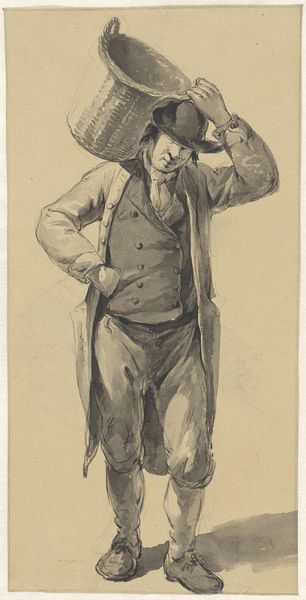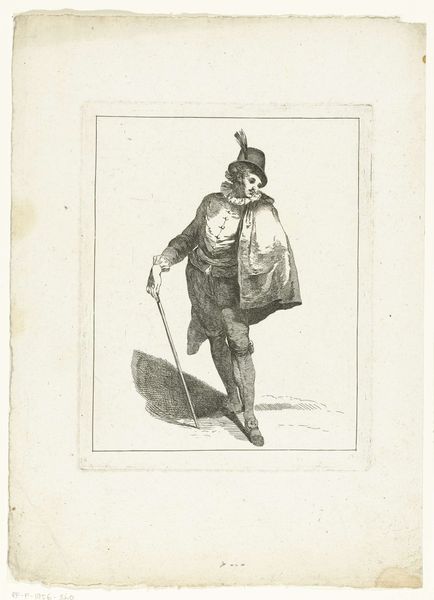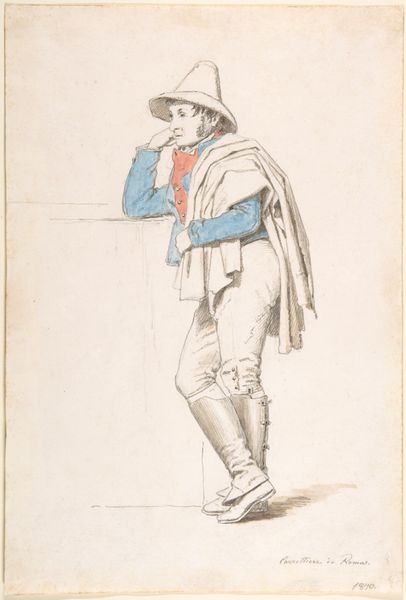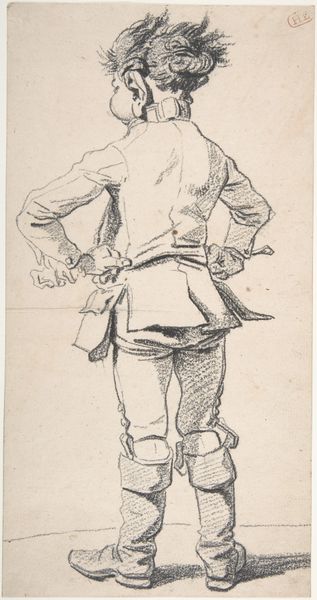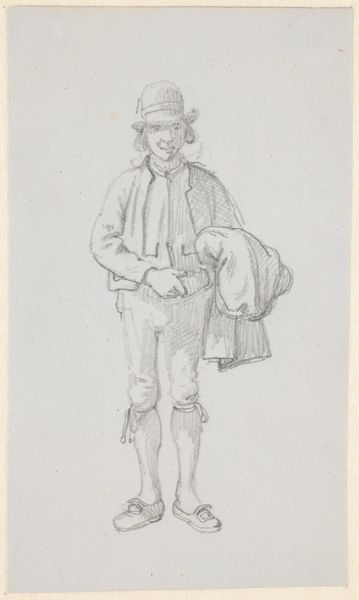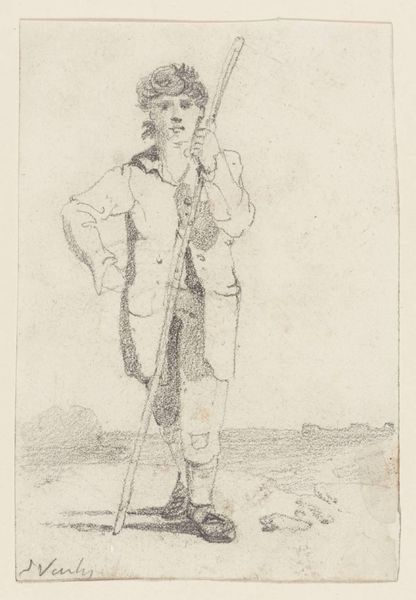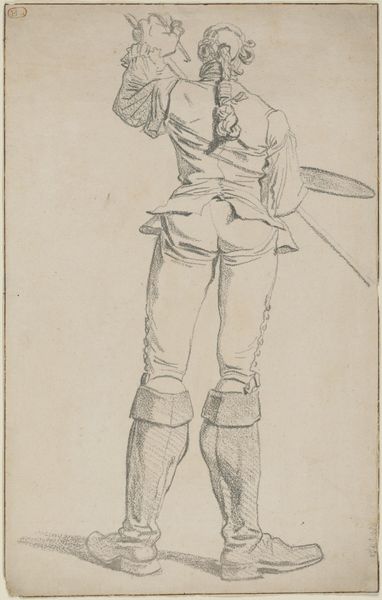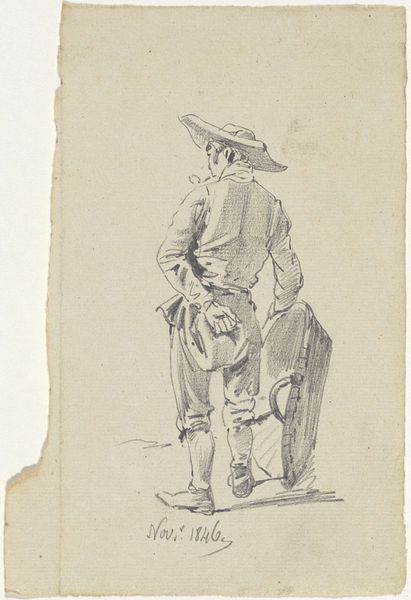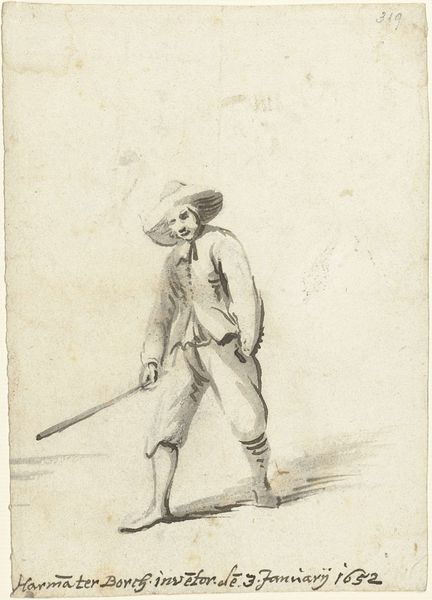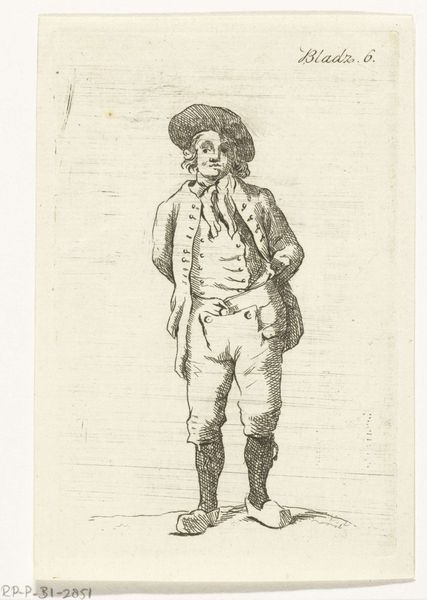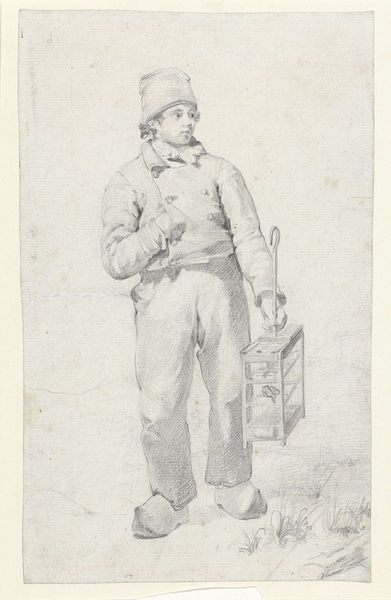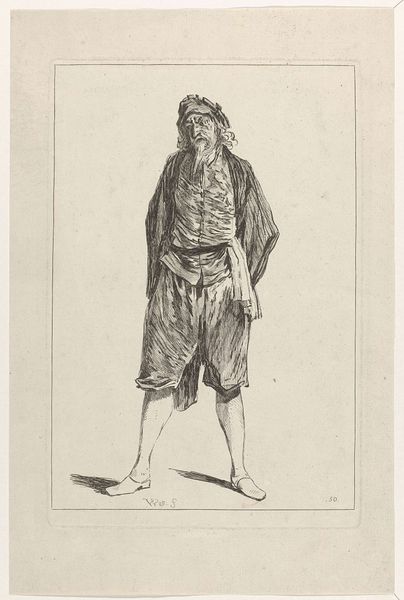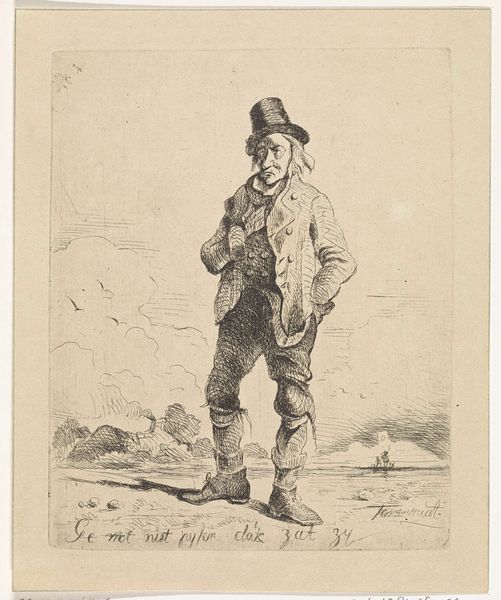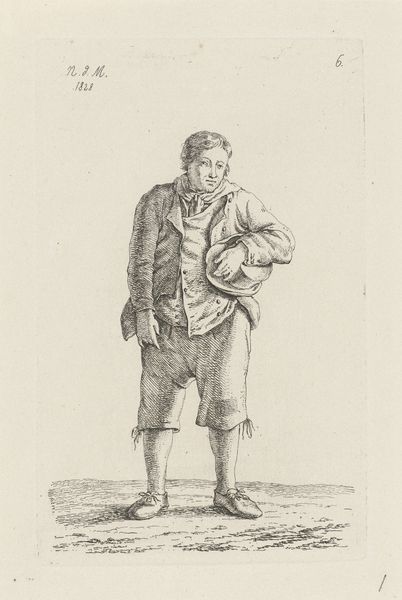
drawing, pencil
#
portrait
#
pencil drawn
#
drawing
#
neoclacissism
#
pencil sketch
#
figuration
#
pencil drawing
#
romanticism
#
pencil
#
portrait drawing
#
genre-painting
#
realism
Dimensions: height 319 mm, width 200 mm
Copyright: Rijks Museum: Open Domain
Jacob van Strij made this pencil drawing of a standing farmer with pipe and spade in the late 18th or early 19th century. It gives us a glimpse into the cultural and social values of the Netherlands at that time. The image presents a working-class man, a farmer, as its central figure. Van Strij’s farmer appears dignified, despite his modest attire, with his gaze directed off to the side, as though contemplating the world around him. The prominence of a farmer in a work of art suggests a society that valued rural life and labor. The Dutch Republic had a strong merchant class and a tradition of valuing hard work and self-reliance, and these values likely influenced the art of the time. To fully understand a work like this, it's vital to delve into the social and economic history of the Netherlands during this period. Research into the art market, the role of agricultural labor, and the cultural values of the Dutch Republic can provide valuable insights into the meaning and significance of this drawing.
Comments
No comments
Be the first to comment and join the conversation on the ultimate creative platform.
